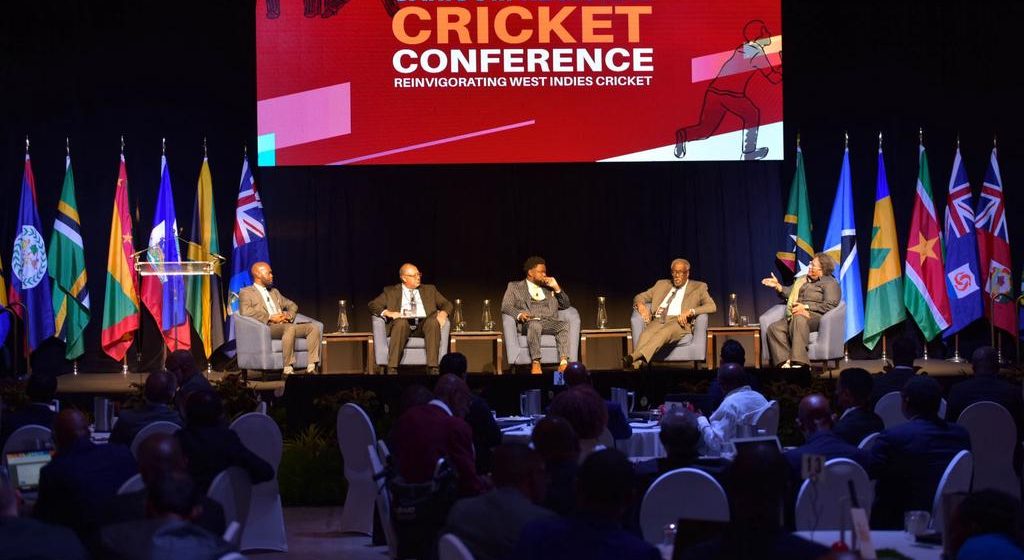The lucrative Caribbean Premier League (CPL), which began 11 years ago, has come under the microscope at the Caricom conference on West Indies cricket in Trinidad, with government leaders urging the parties to renegotiate the contract for the Twenty20 tournament. The CPL is the premier T20 tournament that takes place in the West Indies every year, enabling elite players from the Caribbean and around the world to participate annually. “Who signs a 50-year contract?” former West Indies captain Sir Clive Lloyd asked during a panel discussion.
Barbados Prime Minister Mia Mottley and her Trinidad and Tobago counterpart, Dr. Keith Rowley, insisted that the contract must be renegotiated.
The Guyana president, Dr. Irfaan Ali, said the CPL was “an opportunity”, and it was important for all parties to work together to expand and build on the opportunity to lead the CPL into the best form of franchise cricket.
“In Guyana, we are working with Cricket West Indies, CPL, and the ICC to launch a new product for the region that will position the region in the global market,” he added. Discussing the state of West Indies cricket at the two-day conference, being held under the theme Reinvigorating West Indies Cricket, Lloyd said that if CWI were running the CPL, the players might have been receiving more money that could help the development of the sport in the region. “But we signed a 50-year contract,” he said. “It isn’t funny. Now, if we were running our own CPL, we would have been able to give more money to the players, and they probably would want to play with us much longer. But, again, how can a board sit down and negotiate that? It is still a mystery to me”.
Mottley said it is important to have a re-look at the contract. “I think that is why we need to see it; we need to see if there is a restraint of trade, and we need to use the leverage of the power of any right to re-open, and there is no simple way around it other than that,” Mottley said.
Earlier, she said she did not believe that “a contract that is so unequally yoked ought not to stand for 50 years”. “That’s half a century,” she said. “How many cricketers are going to go through that half a century?”
She also wanted CWI to rethink their negotiations with respect to TV rights, branding rights, and merchandising.
“Who’s going to do the negotiations to make sure that those mistakes are not made again?” she asked.
Barbadian business executive Peter Griffith said it was important for CWI to “manage our destiny”.
“We need to hire the professionals that can manage our business,” he said. “We need to have a commercial section who can deal with high-powered people, who can negotiate properly because… we are accustomed to small money, we accept small money, and as a result, the big people make the big money out of us.”
CWI President Dr. Kishore Shallow said this was the 12th year of the CPL contract, “and what we have been doing over the years is engaging the members on how Cricket West Indies could benefit more”.
“I am not going to be the different view from my esteemed panellists; it is highly favourable to CWI,” he said. “No. We would prefer more favourable terms.
“We have echoed that to the management and owners of CPL, and in fairness to them, they have been responding positively, and we have realised more benefits in recent years.”
Shallow said discussions were continuing with CPL, and he noted that they have added a women’s version of the CPL in the three years.
“I think that’s a great addition they have made… and our players have benefited, and there are other opportunities for us to explore,” he said. “I trust after this symposium, if not before that, CPL will be open now more than ever to helping CWI to get more favourable terms”. (CMC)

